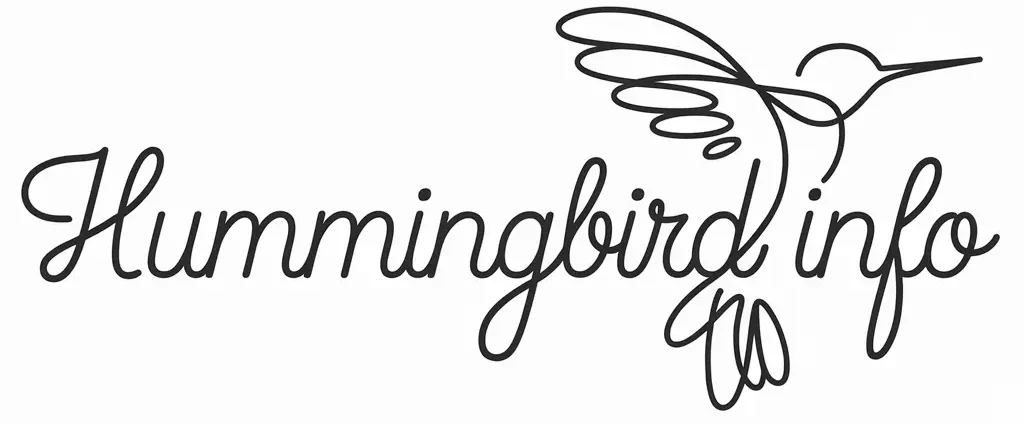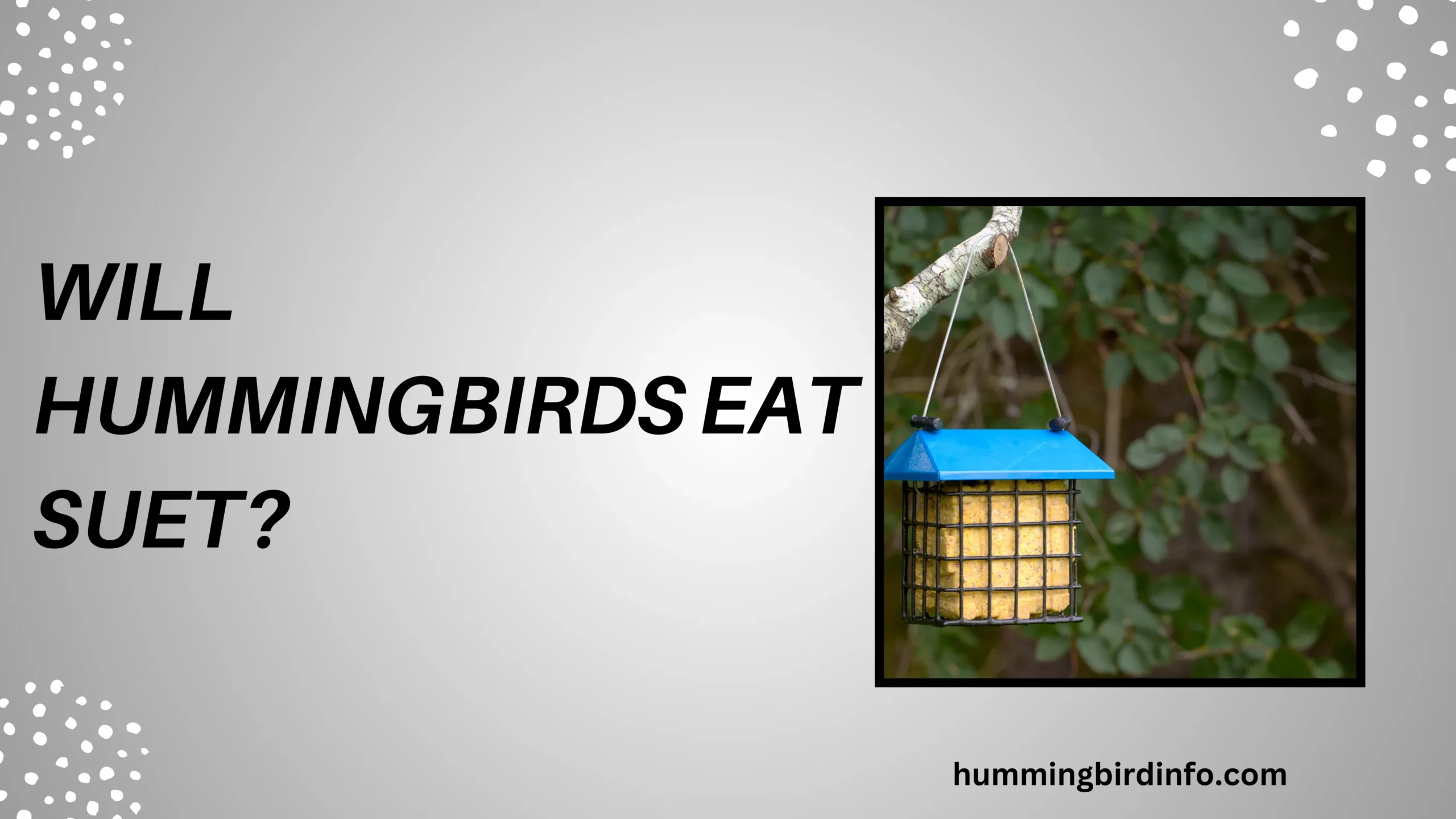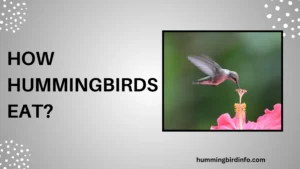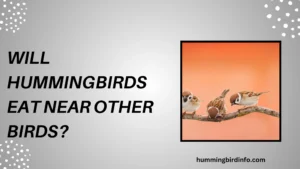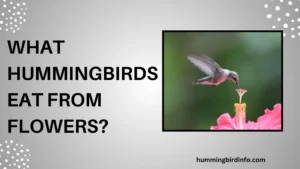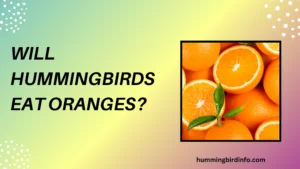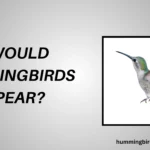Hummingbirds, those dazzling jewels of the sky, are often seen flitting from flower to flower, sipping sweet nectar with lightning speed.
We know them as nectar lovers, fueled by sugary energy to support their astonishingly fast movements. But have you ever wondered if a bird so tied to nectar could ever be tempted by something as surprising as suet?
Suet, a dense cake of animal fat mixed with seeds and fruits, is usually meant for hearty birds like woodpeckers or nuthatches. It’s rich, fatty, and heavy—qualities that seem the exact opposite of what a hummingbird would seek. Still, nature has a way of surprising us, and sometimes, our tiny friends behave in ways that don’t match their delicate image.
Understanding if hummingbirds eat suet isn’t just a quirky curiosity. It opens up important discussions about their adaptability, how they survive when resources are scarce, and how we can better support them in our backyards.
Stay with me as we unravel this fascinating question—you might never look at your bird feeders the same way again!
Contents
- 1 Understanding Hummingbird Nutritional Needs
- 2 The Composition of Suet and Hummingbird Interest
- 3 Observations and Science Behind Hummingbird Behavior
- 4 Implications for Backyard Bird Feeding
- 5 Conclusion
- 6 FAQs
- 6.1 Q1. Will hummingbirds eat suet if they are very hungry?
- 6.2 Q2. Is suet harmful to hummingbirds?
- 6.3 Q3. Can suet feeders attract hummingbirds accidentally?
- 6.4 Q4. What should I feed hummingbirds instead of suet?
- 6.5 Q5. Have scientists studied hummingbirds eating suet?
- 6.6 Q6. Do hummingbirds need fat in their diet at all?
Understanding Hummingbird Nutritional Needs
Hummingbirds have a relentless need for energy, and nectar provides the fast sugars they need for their high-speed lives. The sugars—sucrose, glucose, and fructose—are rapidly absorbed, giving them the power to hover and zip through the air.
Beyond sweet nectar, they hunt tiny insects and spiders to get essential proteins, vitamins, and fats. These creatures help the birds build muscle, grow feathers, and stay strong during breeding seasons.
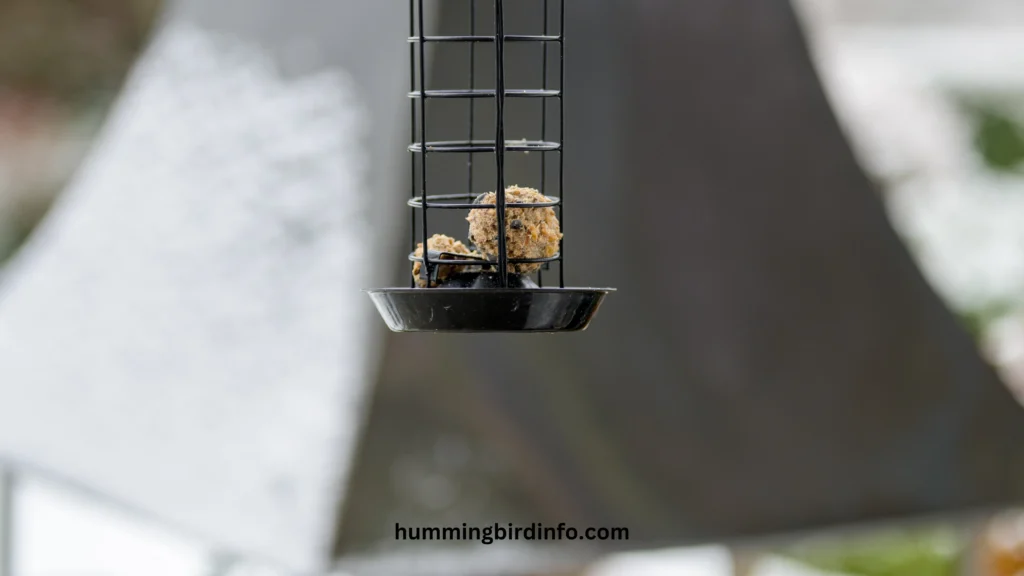
Their digestive systems are built for speed, with short tracts that excel at handling sugars but not heavy, fatty foods. Their bodies are simply not optimized for digesting rich fats like suet.
Water is another silent hero in their diet, often coming from nectar or early morning dew. Proper hydration keeps them healthy and supports their rapid metabolism.
In times of stress or scarcity, hummingbirds can show surprising flexibility, experimenting with odd food sources if it means survival.
The Composition of Suet and Hummingbird Interest
Suet typically comes in several forms—plain fat blocks, or mixed with seeds, nuts, fruits, and even insects. Each type appeals to different bird species based on their natural diet.
The high fat content of suet makes it ideal for energy-demanding birds, but hummingbirds lack the machinery to process large amounts of animal fat effectively. They are built for sugar-burning, not fat-burning.
Some suet cakes are rich in insect parts, and this is where things get interesting for hummingbirds. They might pick at tiny insects embedded in the fat rather than the fat itself.
Tiny residues, oils, or protein specks on a suet feeder might catch a hummingbird’s attention, leading to quick pecks rather than full meals.
Brightly colored suet feeders placed near nectar sources might also accidentally lure hummingbirds, simply out of curiosity rather than a real need for suet.
In nature, hummingbirds have been known to sip tree sap or explore strange sugary drinks, showing that their feeding behavior is surprisingly opportunistic when needed.
Observations and Science Behind Hummingbird Behavior
Some bird enthusiasts have reported seeing hummingbirds at suet feeders, sparking lots of online debates. However, careful analysis often reveals they were picking insects, not fat.
There are very few scientific studies directly investigating hummingbirds eating suet. Most experts agree it’s rare and not a significant food source for them.
We can infer from their natural habits that hummingbirds are unlikely to seek out pure suet, preferring insects embedded within it if they come close at all.
In comparison, other nectar-loving birds like honeyeaters and sunbirds are also not known for eating fatty foods, reinforcing the idea that it’s unusual.
Sometimes, when food is scarce and the cold bites hard, hummingbirds might show desperation behavior, investigating anything that could offer a sliver of nutrition.
It’s also possible that observers sometimes misinterpret hummingbird actions, mistaking curiosity or insect hunting for true suet consumption.
Implications for Backyard Bird Feeding
It’s best not to offer suet as a food for hummingbirds. Stick with nectar feeders filled with fresh, clean sugar water (a 1:4 ratio of sugar to water).
Feeding suet to hummingbirds could cause digestive stress or health problems, as their bodies are simply not adapted to handle heavy fats.
The best way to supplement their diet naturally is to attract insects by creating a pesticide-free, flower-rich garden.
You can plant native nectar plants and place multiple feeders around your yard to ensure they have safe, familiar food sources.
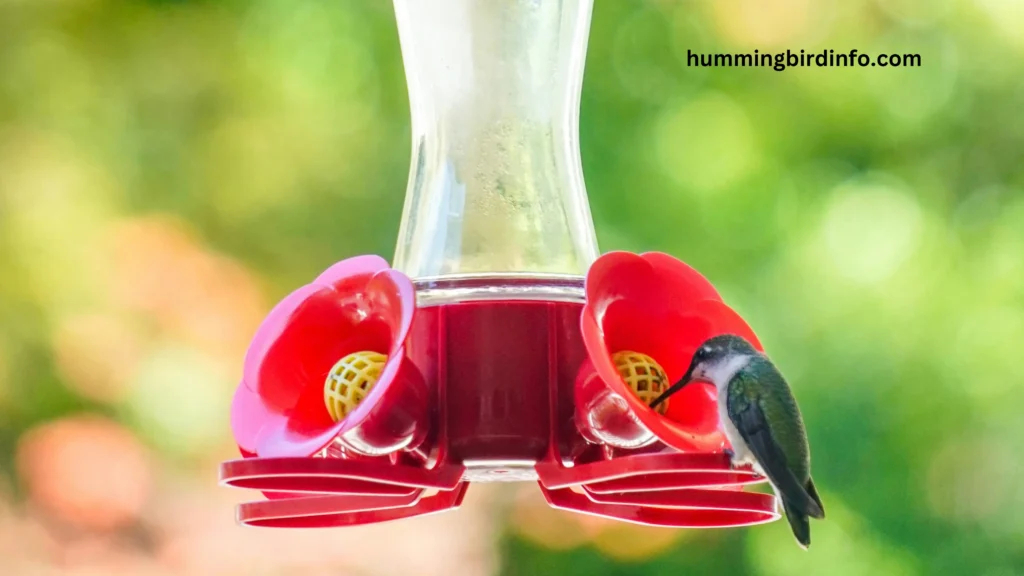
Still, it can be fun and educational to observe hummingbirds near suet feeders, but always prioritize offering them what nature intended: nectar and insects!
Conclusion
While hummingbirds may occasionally show curiosity toward suet, especially if insects are involved, it’s not their natural or preferred food. Their bodies are designed for speedy sugar processing, not digesting dense animal fats.
Although a desperate or curious hummingbird might poke at suet, relying on it for nutrition is highly unlikely and potentially unhealthy. Fresh nectar, flowers, and tiny insects remain their true staples.
As backyard bird lovers, we should stay mindful and support hummingbirds with the right food sources. It’s both a joy and a responsibility to provide a safe, nourishing environment for these amazing creatures.
FAQs
Q1. Will hummingbirds eat suet if they are very hungry?
A1. In extreme cases, a hummingbird might investigate suet but will likely target embedded insects, not the fat itself.
Q2. Is suet harmful to hummingbirds?
A2. Yes, consuming significant amounts of animal fat could cause digestive issues for hummingbirds.
Q3. Can suet feeders attract hummingbirds accidentally?
A3. Yes, the bright colors or nearby placement to nectar feeders might draw their attention out of curiosity.
Q4. What should I feed hummingbirds instead of suet?
A4. Offer a simple sugar water solution (1 part sugar, 4 parts water) and plant native flowers.
Q5. Have scientists studied hummingbirds eating suet?
A5. There is very little scientific research on this topic; most knowledge comes from anecdotal reports.
Q6. Do hummingbirds need fat in their diet at all?
A6. They get small amounts of fat naturally from eating insects, not from direct fat consumption like suet.
